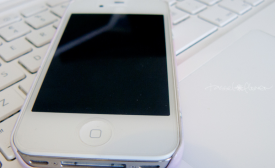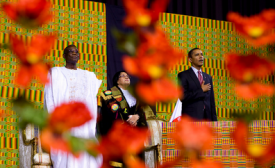digital diplomacy
The active presence of Iranian Foreign Minister Mohammad Javad Zarif on Facebook and Twitter has been a great tool and venue for Iran’s public diplomacy with Western journalists. It has also served as an unfiltered source of direct interaction between Zarif and the Iranian Internet-savvy youth.
A reader who invested in .la domain names asked me this week if I knew how the domain name was doing since GoDaddy put some of its marketing weight behind the domain. Here’s your answer: GoDaddy customers have registered over 7,000 domain names since the company got involved in June. The registrar started promoting the domains in July.
According to a mailing from the offical site of the .NYC new gTLD domain name extension, mydotnyc.com the city expects that the .NYC extension will go live in the 1st half of 2014. “The City of New York will be one of the first cities in the world to be granted its own domain extension by ICANN, the nonprofit organization responsible for overseeing the domain names.

How does what we know about information and communication technology (ICTs) and persuasion help practitioners makes sense of how to integrate technology into the mission of public diplomacy? We know that ICTs can be:
A) Persuasive by its ability to facilitate or enable other attempts at persuasion.
B) Persuasive as a transmission vehicle (the medium endows some form of credibility or legitimacy).
C) Persuasive as a kind of context for communication - an intermediary - that enables the influence potential of social ties.
How does what we know help practitioners makes sense of how to integrate technology into their mission? We know that information and communication technology can be: A) persuasive by its ability to facilitate or enable other attempts at persuasion, B) persuasive as a transmission vehicle (the medium endows some form of credibility or legitimacy), or C) persuasive as a kind of context for communication, an intermediary, that enables influential power of social ties.

On Sunday, September 22, 2013, al-Shabab, a Somali-based al Qaeda cell unleashed gunfire on a Kenyan shopping mall, murdering 72 people and injuring over 200 others. The deadliest terrorist attack in Kenya since the 1998 bombing of the U.S. Embassy in Nairobi, the Kenyan mall shooting temporarily brought Africa to the forefront of U.S. news organizations like CNN, MSNBC, and Fox, who typically ignore the continent.
On Sunday, September 22, 2013, al-Shabab, a Somali-based al Qaeda cell unleashed gunfire on a Kenyan shopping mall, murdering 72 people and injuring over 200 others. The deadliest terrorist attack in Kenya since the 1998 bombing of the U.S. Embassy in Nairobi, the Kenyan mall shooting temporarily brought Africa to the forefront of U.S. news organizations like CNN, MSNBC, and Fox, who typically ignore the continent.
Should public diplomacy policy-makers turn to digital diplomacy tools for the future of practice? I ask this question to provoke some reflection among public diplomacy watchers beyond the quick criticism of tweeting ambassadors and social media campaigns. There seems to be some debate over whether or not digital media practices represent the future of US public diplomacy.







